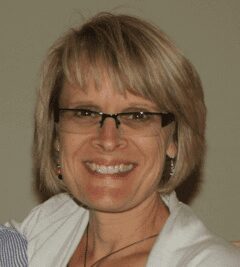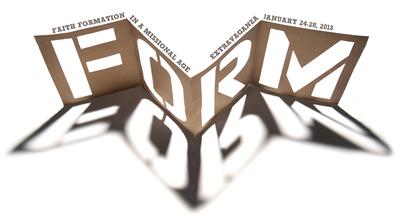 By Dr. Terri Martinson Elton, Director of the Center for First Third Ministry at Luther Seminary
By Dr. Terri Martinson Elton, Director of the Center for First Third Ministry at Luther Seminary
Have you experienced it? There’s a shift underway.
There is a conversation growing in our midst. The conversation began wondering if (what we know as) Sunday School and confirmation ministries were working. This part of the conversation had many dimensions; some focused on curricular and programmatic choices, others centered on learning and teaching styles, and a few offered imaginative ideas for reengineering. A wide assortment of people have been involved in these conversations, including volunteer leaders, Sunday School superintendents, parents, lay staff, pastors, and publishing houses. Aspects of this conversation remain, but over time the conversation also included dialogue around the shifts taking place in culture. Many of these dialogues erupted out of frustration, naming the things which had changed and tapping into our human need to point fingers and find excuses. Yet such conversations didn’t change ministry or the culture, they only helped leaders feel better for a brief moment. So the dialogue begged for a new posture, on which eventually morphed into listening to and learning about culture. This listening and learning is ongoing, yet glimpses of our current reality and clues to a way forward are surfacing. Today, I believe, another dimension has been added to the conversation. Many in the church recognize the church doesn’t speak from the center of society. And this shift is tapping into deeper issue and forcing a more profound question, “What is faith formation is a missional age?”
Many of the leaders in the conversations I am in have noted several things. First, just reexamining ministry with those in the first third of life, without placing it within a larger conversation about the church or cultural context, is not sufficient for thinking about ministry in the future. Second, having studied culture, major shifts have taken place which are reframing what people think and believe, as well as how they relate and imagine life. These new realities need to be integrated into ministry. And third, there is a need for the church to be present in these shifts. The church has a call to the world, and the world needs the church, or at least the heart of what the church is called to be and do. But I’m worried. I am worried the church might miss the opportunity to be what it is called to be. Why? Because many church leaders are caught up in a particular “view” of church, one that includes buildings and budgets, pastors and programs, Sunday School curriculum and Confirmation Sunday. Are we willing to call the question and reexamine our current practices in light of our core mission? How might we, the church, share the gospel with children today? What practices embody the faith for teens? What conversations are young adults yearning for about God and the world? How is faith informing family life?
I wish I could point to where this conversation is going. I have to be honest, I don’t know. But I am optimistic. I’m optimistic because the conversation is growing; expanding in breadth and depth, with new conversation partners joining in all the time. As the conversation grows, the collective intelligence of the many make me more hopeful, for the expanded conversation is better than if only a few took this up. One place this conversation is taking place is the ELCA Youth Ministry Network’s 2013 annual gathering, with reFORMation: faith formation in a missional age as its theme. (Five hundred Lutherans must have something to say about this right?) I am looking to participating and learning from these conversations. And I invite you to join in or create your own opportunity. And please, share your learning for together we can be the church in this time and place.
– Terri
Join the conversation on Facebook.com/FirstThird!
 Terri Elton is passionate about young people and their families, and loves the church. No really! She’s our Associate Professor and teaches with an eye toward developing leaders and leading change.
Terri Elton is passionate about young people and their families, and loves the church. No really! She’s our Associate Professor and teaches with an eye toward developing leaders and leading change.

